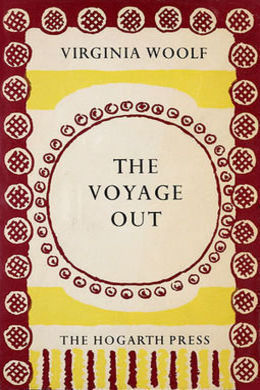
-
EPUB 403 KB
-
Kindle 545 KB
-
Support epubBooks by making a small $2.99 PayPal donation purchase.
Description
In The Voyage Out, one of Woolf’s wittiest, socially satirical novels, Rachel Vinrace embarks for South America on her father’s ship, and is launched on a course of self-discovery in a modern version of the mythic voyage. Lorna Sage’s Introduction and Explanatory Notes offer guidance to the reader new to Woolf, and illuminate Woolf’s presence, not identifiable in the heroine, but in the social satire, lyricism and patterning of consciousness in one woman’s rite of passage.
545 pages with a reading time of ~8.50 hours (136286 words), and first published in 1915. This DRM-Free edition published by epubBooks, 2010.
Community Reviews
There are currently no other reviews for this book.
Excerpt
As the streets that lead from the Strand to the Embankment are very narrow, it is better not to walk down them arm-in-arm. If you persist, lawyers’ clerks will have to make flying leaps into the mud; young lady typists will have to fidget behind you. In the streets of London where beauty goes unregarded, eccentricity must pay the penalty, and it is better not to be very tall, to wear a long blue cloak, or to beat the air with your left hand. One afternoon in the beginning of October when the traffic was becoming brisk a tall man strode along the edge of the pavement with a lady on his arm. Angry glances struck upon their backs. The small, agitated figures–for in comparison with this couple most people looked small–decorated with fountain pens, and burdened with despatch-boxes, had appointments to keep, and drew a weekly salary, so that there was some reason for the unfriendly stare which was bestowed upon Mr. Ambrose’s height and upon Mrs. Ambrose’s cloak. But some enchantment had put both man and woman beyond the reach of malice and unpopularity. In his guess one might guess from the moving lips that it was thought; and in hers from the eyes fixed stonily straight in front of her at a level above the eyes of most that it was sorrow. It was only by scorning all she met that she kept herself from tears, and the friction of people brushing past her was evidently painful. After watching the traffic on the Embankment for a minute or two with a stoical gaze she twitched her husband’s sleeve, and they crossed between the swift discharge of motor cars. When they were safe on the further side, she gently withdrew her arm from his, allowing her mouth at the same time to relax, to tremble; then tears rolled down, and leaning her elbows on the balustrade, she shielded her face from the curious. Mr. Ambrose attempted consolation; he patted her shoulder; but she showed no signs of admitting him, and feeling it awkward to stand beside a grief that was greater than his, he crossed his arms behind him, and took a turn along the pavement. The embankment juts out in angles here and there, like pulpits; instead of preachers, however, small boys occupy them, dangling string, dropping pebbles, or launching wads of paper for a cruise. With their sharp eye for eccentricity, they were inclined to think Mr. Ambrose awful; but the quickest witted cried “Bluebeard!” as he passed. In case they should proceed to tease his wife, Mr. Ambrose flourished his stick at them, upon which they decided that he was grotesque merely, and four instead of one cried “Bluebeard!” in chorus. Although Mrs. Ambrose stood quite still, much longer than is natural, the little boys let her be. Some one is always looking into the river near Waterloo Bridge; a couple will stand there talking for half an hour on a fine afternoon; most people, walking for pleasure, contemplate for three minutes; when, having compared the occasion with other occasions, or made some sentence, they pass on. Sometimes the flats and churches and hotels of Westminster are like the outlines of Constantinople in a mist; sometimes the river is an opulent purple, sometimes mud-coloured, sometimes sparkling blue like the sea. It is always worth while to look down and see what is happening. But this lady looked neither up nor down; the only thing she had seen, since she stood there, was a circular iridescent patch slowly floating past with a straw in the middle of it. The straw and the patch swam again and again behind the tremulous medium of a great welling tear, and the tear rose and fell and dropped into the river. Then there struck close upon her ears– Lars Porsena of Clusium By the nine Gods he swore– and then more faintly, as if the speaker had passed her on his walk– That the Great House of Tarquin Should suffer wrong no more. Yes, she knew she must go back to all that, but at present she must weep. Screening her face she sobbed more steadily than she had yet done, her shoulders rising and falling with great regularity. It was this figure that her husband saw when, having reached the polished Sphinx, having entangled himself with a man selling picture postcards, he turned; the stanza instantly stopped. He came up to her, laid his hand on her shoulder, and said, “Dearest.” His voice was supplicating. But she shut her face away from him, as much as to say, “You can’t possibly understand.” As he did not leave her, however, she had to wipe her eyes, and to raise them to the level of the factory chimneys on the other bank. She saw also the arches of Waterloo Bridge and the carts moving across them, like the line of animals in a shooting gallery. They were seen blankly, but to see anything was of course to end her weeping and begin to walk. “I would rather walk,” she said, her husband having hailed a cab already occupied by two city men.
